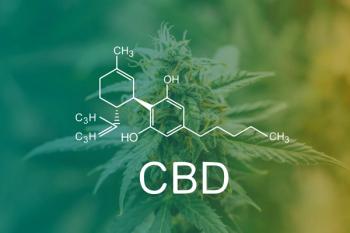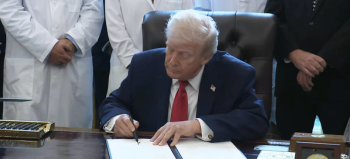
Cannabis Science and Technology
- October 2020
- Volume 3
- Issue 8
The FDA is Coming…Will the Cannabis Industry Be Ready? Part I

What does FDA oversight mean for cannabis businesses and the industry as a whole?
The United States Food and Drug Administration (FDA) plans to further regulate the cannabis industry (1), specifically cannabidiol (CBD) products. These regulations will undoubtedly reflect how the FDA currently regulates pharmaceutical and nutritional supplement products. Is FDA oversight necessary? What is the current state of the industry with respect to anticipated regulations? What does FDA oversight mean for cannabis businesses and the industry as a whole? In this, the first of a two-part series, I will give my view on the need for FDA involvement in our industry, and discuss the current state of things. In Part II, to be published in the next issue, I will discuss the specifics of what FDA regulation will mean for cannabis businesses.
The Federal Food, Drug, and Cosmetics Act, passed by the United States Congress in 1938, gives the US Food and Drug Administration (FDA) the power to regulate the manufacture and sale of food, medicines, and cosmetics (2). The act was passed to protect the public from things such as dangerous patent medicines and tainted food. In essence, the FDA regulates any product that goes into or onto a human being. These products undergo greater scrutiny than others because of their potential to cause harm to us if not made properly. There is also an economic aspect to FDA regulation; people should get what they pay for.
The regulatory goal for the manufacture of medicines is that they be “safe and effective” (2). The first burden, safety, is always the minimum standard, part of the “above all else do no harm” idea enshrined in the Hippocratic Oath (3). The second burden, efficacy, is defined as (4): “Capacity for producing a desired result or effect.” This simply means that the drug must treat the disease for which it is being used.
The FDA has already approved the use of a cannabidiol (CBD)-based medicine called Epidiolex for treatment of certain types of epilepsy (5). This cannabis medicine is one of the first to undergo the rigors of the FDA’s drug approval process and come out the other side with the stamp of approval. This is the best proof yet that cannabis truly is medicine.
The challenge we face now is there's one CBD medicine with FDA approval, but thousands of companies are selling CBD containing products without FDA approval. This situation is—to the best of my knowledge—unprecedented; that an active pharmaceutical ingredient is made available to the general public before FDA approval. In a sense then, the horse is out of the barn. How does the FDA go about regulating an industry that has sprinted ahead of it in terms of product development and sales?
Important Questions to Consider
Is FDA Regulation of the Cannabis Industry Necessary?
At the Federal level, cannabis products with 0.3 weight percent or less total tetrahydrocannabinol (THC) are legal, but anything above this is illegal (6,7). States such as California and Colorado have full legalization of cannabis, other states allow some cannabis products but not others, and still others ban all cannabis products (8). This means there are numerous, overlapping, and competing sets of regulations the cannabis industry must comply with. This uneven regulatory landscape is a financial and logistical burden for cannabis businesses, particularly ones doing business in multiple states. An argument for FDA regulation is that with one overarching regulatory body there will hopefully be only one set of regulations all cannabis businesses must abide by, reducing the time and cost needed to comply with those regulations, hopefully boosting profitability.
I have been a longtime advocate that cannabis is medicine and that it should be tested like medicine (9). FDA regulation will require more and better testing at all steps in the cannabis product supply chain. My own work consulting with extractors has shown that implementation of in-house testing and quality control programs, though not necessarily cheap, reaps big benefits by increasing the control and understanding of manufacturing processes so more product can be made with less input, maximizing safety, quality, productivity, and profits. Believe or not, more regulation can lead to bigger not smaller profits.
What is the current state of industry compliance with potential FDA regulations?
I have been involved in the cannabis industry since it first became legal in Colorado in 2014. I have developed cannabis testing methods, sold equipment to cannabis businesses, worked as a laboratory director for an extractor, and now consult for cannabis businesses. I have visited dozens of cannabis businesses across the country including farms, extractors, and dispensaries. My firsthand observation is that the current state of the industry's compliance with potential FDA regulations is mixed at best.
I have seen cannabis businesses that are familiar with FDA regulations and are making a good faith effort to abide by these rules. But I have also seen true horror stories. I see people jumping into growing cannabis with no idea what strains to grow, how to prepare the soil, manage pests, or know when to harvest. I have seen extractors with no process control programs in place who have no understanding of what they are making, how they made it, and are unable to make the same thing twice. I see dispensaries selling products with completely different potency than claimed on the label (10). I see sectors of the industry refuse to listen to any arguments for the expansion of in-house testing and other regulations. I have had cannabis company executives say to me with a straight face that, “We don’t need to do in-house testing, the state takes care of that for us.”
One reason the FDA is taking a closer look at our industry is the extent of the product mislabeling problem. A recent report the FDA sent to the US Congress found a disturbing number of CBD products contain significantly less CBD than stated on their label, and some contained no CBD at all (11). This problem has been previously documented (12). This means cannabis patients are not getting the correct dose of medicine.
What would happen if something like this occurred in the pharmaceutical industry? Imagine the Dewey, Cheatham, and Howe (13) pharmaceutical company sold 100,000 antibiotic tablets that contained no antibiotic. Doctors would prescribe these pills in good faith, but their patients would not get better, instead getting sicker or possibly die since they are not receiving any medicine. Once it was discovered the pills were fake, imagine the bad press and billions of dollars in lawsuits that would be filed. The company would probably be shut down, and company executives may go to jail. We as a society do not tolerate this situation, which is why the FDA exists. And yet every day cannabis patients are taking medicine with the wrong dose of CBD in it. This threatens the health of our most important asset, our customers, and damages the credibility of our industry. The extent of this problem indicates to me that the current regulatory regime is not working. FDA regulation would standardize manufacture, testing, and labeling of cannabis products and would go a long way towards solving the mislabeling problem.
Besides the public health threat from mislabeling, there’s the economic threat as well. When people buy mislabeled CBD products they are not getting what they are paying for. If you bought a carton of milk at the grocery store and found upon getting it home it was half full would you be happy? Of course not. You would march right back to the grocery store with the offending carton in hand and ask for a refund. If this situation occurred regularly the grocery store may start losing customers. And yet people are buying CBD products with less than the stated potency on a regular basis. If we don’t tolerate this type of rip off in our own lives, why do we tolerate it in our industry? Since the current regulatory regime has failed to solve this problem, I believe oversight by the FDA is needed.
Another problem the FDA can help with is inter-laboratory error. This is the well documented problem where third party cannabis laboratories obtain significantly different results on the same samples (14–16). There are a number of causes for this problem including lack of standard analytical methods, lack of standard reference materials, and lack of training (15). At the moment, individual states are tasked with licensing third party cannabis laboratories, and many of these laboratories are certified by the International Standards Organization (ISO). This level of regulation is not working. In a study by myself and others published in this journal (14), distillate samples sent to five different state licensed, ISO certified laboratories returned THC values from 77% to 94%. This is unacceptable. FDA oversight will help with this problem by implementing the development of standard methods, standard reference materials, and training regimens.
There are numerous organizations working on developing standard cannabis analysis methods, including the American Herbal Products Association (AHPA) (17), American Society for Testing Materials (18), AOAC International (19), the United States Pharmacopeia (USP) (20), and the National Institutes of Standards and Technology (NIST) (21). The work of these organizations is important, and I admire them for doing it. A problem I forsee is with so many organizations involved a number of different standard methods may be developed. From draft methods I have seen I find differences in proposed methods between these groups. We really need one agreed upon analytical method, or some kind of oversight to harmonize these methods with each other. The FDA can do that for us.
What Level of Regulation is Needed: Medicine or Dietary Supplement?
There are two levels of FDA regulation that cannabis products could be placed under—medicines or dietary supplements. Both types of regulation are stringent, but medicines must jump over a higher regulatory bar than dietary supplements to get to market. So, which of these levels of regulation are appropriate for the cannabis industry?
For decades, a large part of the justification for cannabis legalization is that it is medicine. I believe a reason the general public who are not recreational cannabis users have bought into cannabis legalization is that we believe it is medicine and that people should have access to the medicinal benefits of cannabis. If we are going to claim cannabis is a medicine we must be consistent and ask that it be regulated like medicine.
There are people in this industry trying to push for cannabis to be regulated as a dietary supplement. From an economic point of view that makes sense, it will be cheaper and easier to abide by dietary supplement regulations than medicinal ones. However, the main argument for cannabis legalization was that it is a medicine. We cannot now argue that cannabis is not a medicine, but a dietary supplement. If the general public is to believe we are a legitimate industry, we must give them a clear message as to why cannabis should be legal. Going back on what we said to gain legalization will not help our cause.
Conclusions
It is in everyone’s best interest to maintain as positive a public image as possible for the cannabis industry. The problems I have discussed above all damage our industry's reputation, resulting in lost sales and roadblocks to further legalization. The American public will not get behind us unless we can convince them that we can, as an industry, provide them with safe and effective medicines on a consistent basis. The current regulatory regime is clearly not giving us this outcome. FDA regulation will help the cannabis industry do a better job of making medicines and improve our public image, which will lead to a growing and prospering industry. FDA regulation is the right and profitable thing to do.
References
https://www.fda.gov/news-events/public-health-focus/fda-regulation-cannabis-and-cannabis-derived-products-including-cannabidiol-cbd .https://en.wikipedia.org/wiki/Federal_Food,_Drug,_and_Cosmetic_Act .https://en.wikipedia.org/wiki/Hippocratic_Oath .www.dictionary.com .https://www.fda.gov/news-events/press-announcements/fda-approves-first-drug-comprised-active-ingredient-derived-marijuana-treat-rare-severe-forms .- 115th United States Congress, Senate Bill S.2667,” Hemp Farming Act of 2018.
https://www.federalregister.gov/documents/2019/10/31/2019-23749/establishment-of-a-domestic-hemp-production-program .https://www.businessinsider.com/legal-marijuana-states-2018-1 .- B.C. Smith, Cannabis Science and Technology 2(4), 12–14 (2019).
https://hempindustrydaily.com/wp-content/uploads/2020/07/CBD-Marketplace-Sampling_RTC_FY20_Final.pdf .www.bigsurscientific.com .- M.O. Bonn-Miller, M.J.E. Loflin, B.F. Thomas, J.P. Marcu, T. Hyke, and R. Vandrey, Journal of the American Medical Association 318, 1708 (2017).
https://en.wikipedia.org/wiki/Dewey,_Cheatem_%26_Howe .- B.C. Smith, P. Lessard, and R. Pearson, Cannabis Science and Technology 2(1), 48 (2019).
- B.C. Smith, Cannabis Science and Technology 2(2), 12-17 (2019).
- B.C. Smith, Cannabis Science and Technology 2(3), 10-14 (2019.
www.ahpa.org .https://www.astm.org/COMMITTEE/D37.htm .https://www.aoac.org/scientific-solutions/casp/ .https://www.usp.org/sites/default/files/usp/document/about/public-policy/2019-07-05-comment-from-usp-cannabis.pdf .https://www.nist.gov/programs-projects/nist-tools-cannabis-laboratory-quality-assurance .
ABOUT THE COLUMNIST
Brian C. SMITH, PHD, is Founder, CEO, and Chief Technical Officer of Big Sur Scientific. He is the inventor of the BSS series of patented mid-infrared based cannabis analyzers. Dr. Smith has done pioneering research and published numerous peer-reviewed papers on the application of mid-infrared spectroscopy to cannabis analysis, and sits on the editorial board of Cannabis Science and Technology. He has worked as a lab director for a cannabis extractor, as an analytical chemist for Waters Associates and PerkinElmer, and as an analytical instrument salesperson. He has more than 30 years of experience in chemical analysis and has written three books on the subject. Dr. Smith earned his PhD on physical chemistry from Dartmouth College.
How to Cite this Article
B. Smith, Cannabis Science and Technology 3(8), 10-12 (2020).
Articles in this issue
about 5 years ago
Cannabis Cultivation: The New Agriculture Tech Playgroundabout 5 years ago
Integrated Data in Cannabis ERP: From Greenhouse to Productionabout 5 years ago
How to Rein in Cannabis Industry Energy?about 5 years ago
THC Remediation: A Basic UnderstandingNewsletter
Unlock the latest breakthroughs in cannabis science—subscribe now to get expert insights, research, and industry updates delivered to your inbox.




